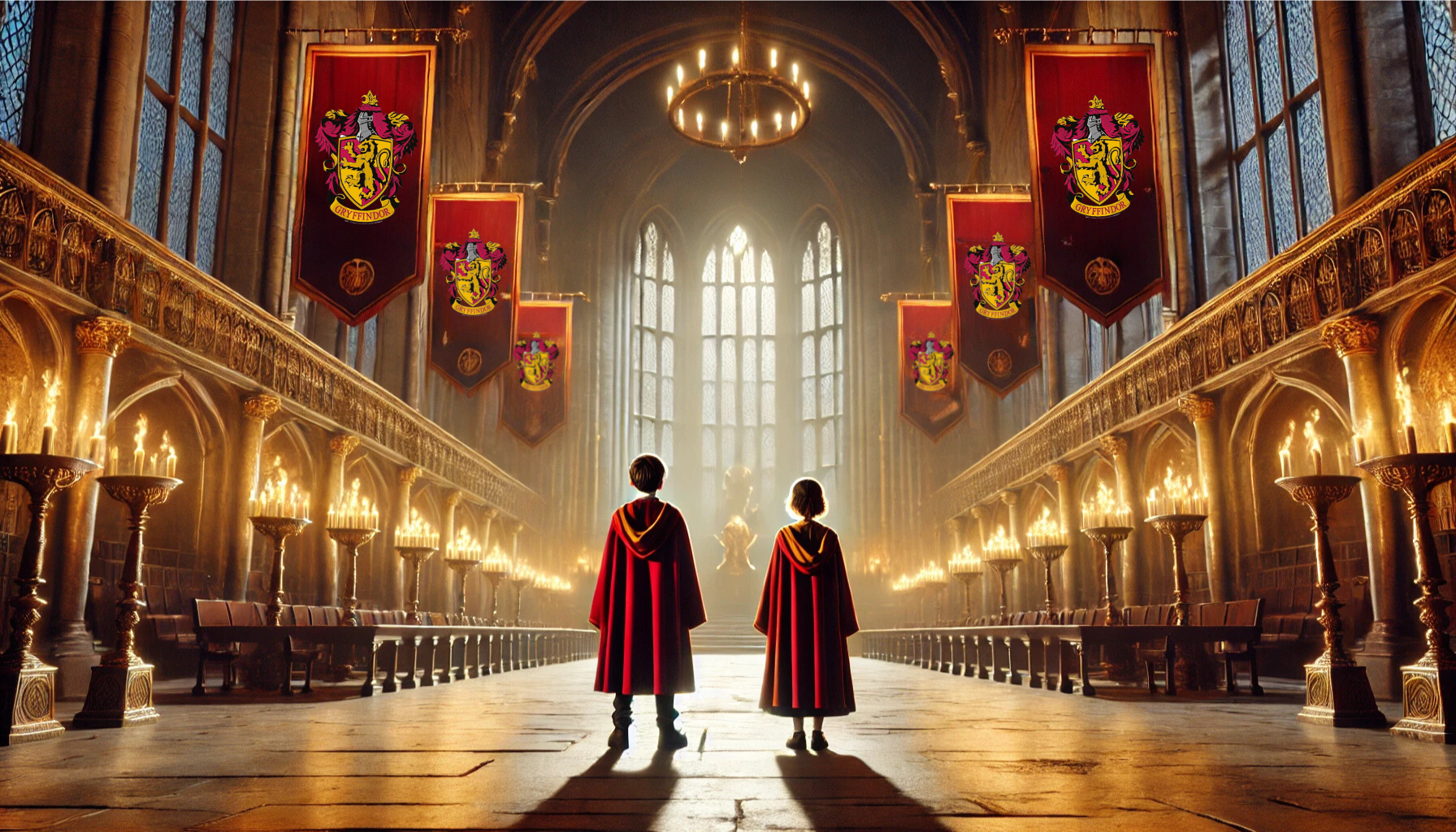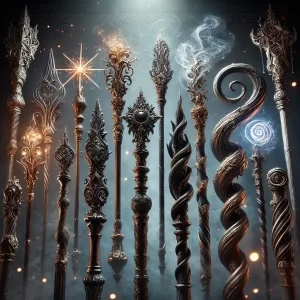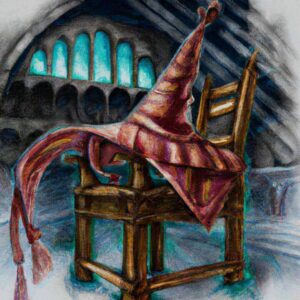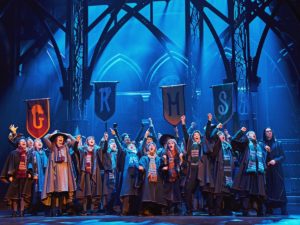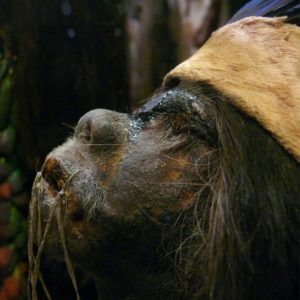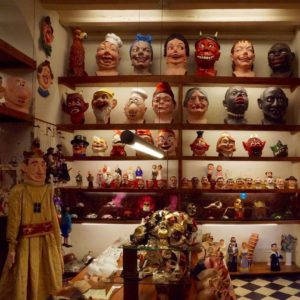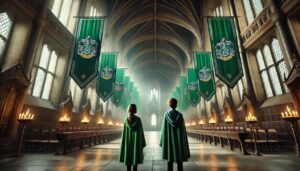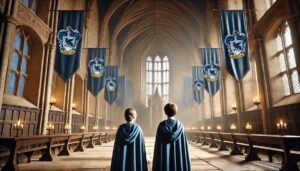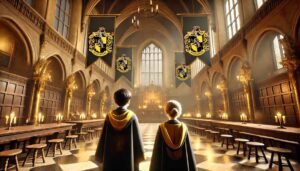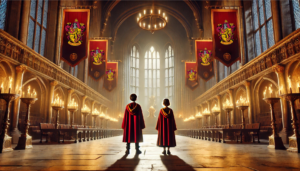Gryffindor House Values: Courage, nerve, and chivalry
Introduction to Gryffindor House
Gryffindor House Values are the cornerstone of one of the most iconic houses at Hogwarts School of Witchcraft and Wizardry. Founded by the legendary Godric Gryffindor, this house has been home to some of the bravest witches and wizards. Godric Gryffindor, known for his courage and boldness, established this house to bring together those who share his ideals of bravery and chivalry.
The Sorting Hat, an enchanted hat that once belonged to Godric himself, plays a crucial role in determining which students are sorted into Gryffindor. It looks for traits of bravery, courage, and chivalry in prospective students, often singing about these values in its annual song at the Start-of-Term Feast.
Gryffindor Tower, located in the west of Hogwarts Castle, is where Gryffindor students reside. The entrance is guarded by the portrait of the Fat Lady, who only admits those who know the current password, ensuring the security and camaraderie within the house.
The house mascot is the lion, representing strength and bravery, while its colors, scarlet and gold, symbolize courage and valor. These symbols are proudly displayed in the Gryffindor common room, fostering a sense of pride and belonging among its members.
Courage in Gryffindor
Courage, as a core Gryffindor trait, is defined by the willingness to confront fear, risk, and adversity. It is not just about bold actions but also the quiet strength to stand up for what is right, even when it is difficult.
Throughout the Harry Potter series, numerous instances showcase the courage inherent in Gryffindor students. One notable moment is when Hermione Granger defies the stereotype of bookishness by courageously joining Harry and Ron in their adventures, such as helping to rescue Sirius Black in “Harry Potter and the Prisoner of Azkaban.”
Courage at Hogwarts is not confined to grand heroic acts. It manifests in everyday situations, such as standing up against bullies like Draco Malfoy or participating in the Dueling Club to learn how to defend oneself and others.
Famous Gryffindor alumni like Albus Dumbledore, Minerva McGonagall, and of course, Harry Potter, are known for their bravery. Dumbledore’s role in defeating Gellert Grindelwald and McGonagall’s leadership during the Battle of Hogwarts are testaments to the courage that defines Gryffindor.
The Role of Nerve in Gryffindor
Nerve, in the context of Gryffindor, refers to the ability to face danger or difficulty with composure. It’s the grit and determination that enables one to push through challenging situations.
In the Harry Potter series, nerve is exemplified in scenes such as Neville Longbottom’s stand against his friends in “Harry Potter and the Philosopher’s Stone,” earning him ten points for Gryffindor and ultimately winning the House Cup.
While nerve and recklessness can sometimes appear similar, they are distinct. Nerve is about calculated risks and courage under pressure, whereas recklessness involves acting without regard for consequences. Gryffindor students learn to differentiate between the two, promoting thoughtful bravery.
Gryffindor students display nerve in various situations, from facing the unknown in the Forbidden Forest to participating in the Triwizard Tournament. They rise to challenges, often surprising others with their resilience and determination.
Chivalry and Its Importance
Chivalry, a significant aspect of Gryffindor values, entails being honorable, fair, and protective, especially towards those who are vulnerable. It is about showing respect and courtesy in all interactions.
The Harry Potter books highlight chivalry in moments such as when Ron Weasley sacrifices himself in a life-sized game of wizard’s chess to ensure the success of his friends, showcasing his willingness to put others’ needs before his own.
Chivalry in Gryffindor is often compared to the values of other houses, such as the wisdom of Ravenclaw or the ambition of Slytherin. However, Gryffindor’s focus on courage and fairness sets it apart, emphasizing the importance of doing what is right.
Chivalry influences relationships and friendships within Gryffindor, fostering a community where loyalty and mutual respect thrive. These bonds are evident in the unwavering support Gryffindor students show each other during times of crisis.
The Influence of Gryffindor Values on Personal Growth
Courage, nerve, and chivalry are not just traits that define Gryffindor students; they are essential components of personal growth. These values help shape well-rounded individuals ready to face the world beyond Hogwarts.
Lessons learned from Gryffindor values are applicable in real life, teaching us to stand up for our beliefs, face challenges head-on, and maintain integrity in all our actions.
Embracing these traits encourages personal growth by fostering confidence and resilience. Gryffindor’s focus on bravery and fairness helps students develop a strong moral compass, guiding them in making ethical decisions.
The impact of Gryffindor values extends to leadership and teamwork. Gryffindor students often emerge as natural leaders, using their courage and chivalry to inspire others and build cohesive, collaborative teams.
